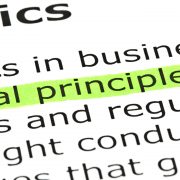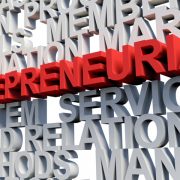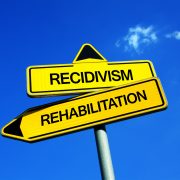Economics is for everyone. Ludwig von Mises wrote, “It concerns everyone, and belongs to all; it is the main and proper study of every citizen.”
Is that overblown? Not really. For individuals, economics is about making good decisions, and good-decision making leads to the good life. Bad decisions lead to bad journeys along bad roads, and it’s often hard to find the way back.
Think Economically, Like An Entrepreneur.
The decision-making practices of entrepreneurs, those innovators who drive economic growth and elevate the life-enjoyment of their fellow citizens, are worthy of emulation. We can all benefit from thinking like entrepreneurs. Let’s call it thinking economically.
First, entrepreneurs choose the economic way over the political way. The economic way creates value by identifying ways to serve others, especially in a new and better manner than their competitors. This creates new value for society, and entrepreneurs get rewarded in proportion to how much value they create. The political way is to let others do the work of value creation, and to appropriate the fruits of that value creation for other purposes.
In the economic way, the individual selects ends (which, in ordinary conversation, we might label as goals or objectives) that they can strive to achieve. These are not ends for society, or for the tribe or the group, but for the individual. Happiness results from the feeling that we get when we select appropriate ends and for which we are able to find the right means to achieve them. Carefully selected ends are important, as opposed to a vague search for “something better”. There are many different ends we could aim for, and so both selection and ranking of the most important are central to good decision-making. Milton Rokeach was an American sociologist who formalized the ranking of ends based on the value that people attach to them. He identified the highest-ranked ends in terms like “An exciting life” or “A sense of accomplishment” or “Freedom”, “Equality” and “Family Security”. These are ends that can occupy us for a lifetime, and should be well chosen.
The Right Ends Require The Right Means.
The second vital component of happiness is selecting the right means to achieve our ends. Means will vary with time, as opposed to ends, which can be maintained throughout life. For example, an individual might select the pursuit of a college degree as a means towards the end of a career and a sense of accomplishment. Some are now questioning whether this is still the best means to that end, indicating that we must all be conscious of changes in the applicability of different means to reach our ends, and that we should be adaptive in making adjustments. “Am I selecting the best means to attain my highest ranked ends?” is a question to ask constantly.
Time Preference: Choose Saving Over Consuming.
Within the ranking of ends and the matching of means to ends lies the variable of time preference. To entrepreneurs, the future is worth more than the present. They are willing to make sacrifices in the present (i.e. consume less) with the goal of reaping greater benefits (i.e. achieving more important ends) in the future. In economics, this behavior is called saving and investing. When we don’t think entrepreneurially we often succumb to short-term preferences that don’t contribute towards our highest ranked long term goals. For example, if we eat or drink too much that’s enjoyable in the moment but bad for us in the longer run, we are undermining our own goal of extended and sustained good health. It’s easy to do, unless we are thinking economically at all times.
Negative Feedback Is A Gift.
To help us to think economically, there is negative feedback. This invaluable input to better thinking comes to us free of charge, courtesy of the marketplace. If we try to make a contribution to the benefit of others, whether that is a business offering or proposing a transaction, or whether it is offering an opinion on something, we’ll quickly get feedback from the marketplace. If the feedback is positive, we are reinforced in our thinking, and we can continue in the same direction. If the feedback is negative, we are faced with a different choice – either to change our communication, to make our contribution more persuasive and acceptable, or to make a different, better and more acceptable offer. Economic thinking embraces negative feedback because it’s the most valuable resource for helping us to improve and do better. To continue our food-and-drink analogy, getting fat is negative feedback (assuming that this was not our chosen end), as is the commentary from others who notice it and are uncomplimentary.
Embrace Uncertainty.
Whatever action we take and whatever ends and means we select, the entrepreneur and the economic thinker recognize that the future is uncertain and there are no guarantees that our desired outcome will come to pass. Economists call this uncertainty. In uncertain conditions, there is always the possibility that our expectations will be disappointed. Entrepreneurs deal with uncertainty by attempting to reduce the number of variables in the uncertainty equation. Given all the choices of action, what evidence is there that one is more likely to generate the expected outcome than another? Entrepreneurs achieve this narrowing of choices of action through testing and experimentation, at the lowest level of commitment and consequently the lowest possible level of risk. In the world of start-up businesses, this is often captured in the idea of minimum viable product or MVP. Given what the entrepreneur needs to find out to reduce future uncertainty, what is the offering with the lowest but most salient number of features, developed with the least commitment of valuable time, in order to generate real feedback, positive or negative, from real customers?
This kind of reduction of uncertainty with minimum investment is applicable to every economic decision. Should you commit your valuable time to going to see a newly released movie? Invest in finding out the evaluation of people whose judgment you trust and who share your tastes. Are you trying to decide which suit or dress to invest in for office wear? Check out the reaction of peers to the fashion and style choices of others who appear to be successful in gaining the kind of social and business acceptance you seek, and then follow their example. In both cases, the marketplace is giving you valuable feedback at little cost.
Economics For Life.
Ranked ends, carefully selected means, continuous assessment of the fitness of means to ends, time preference adjusted towards savings and investment, embracing negative feedback, managing uncertainty by careful testing of steps. These are elements of economic thinking that are useful to us at every moment and in every aspect of our lives.













